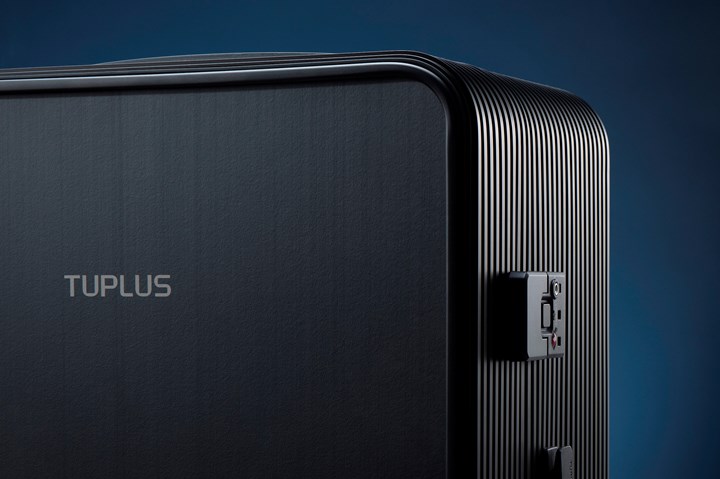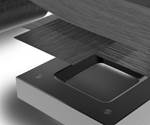Tuplus introduces carbon fiber-reinforced polycarbonate suitcase
The highly durable suitcase, featuring front and back shells made with Covestro’s Maezio polycarbonate composite, was designed for low-cost production, high-volume production.

Source | Covestro
High-end Chinese luggage brand Tuplus has released a new carbon fiber suitcase under its “Core” lineup. The 25-inch model, currently only available for sale in China, features an aluminum and magnesium alloy structural frame, and front and back shells made of Maezio polycarbonate-based composites from Covestro (Shanghai, China).
Tuplus says composites use increases the suitcase’s sturdiness during natural wear and tear, while also elevating design and style. Tuplus has performed safety tests on the suitcase, including drop and tumble tests and falling ball impact tests, noting improved impact resistance compared to conventional aluminum suitcase shells. Further, the carbon fiber is unidirectional, for aesthetic and design simplicity.
Despite the dramatic decrease in travel due to the coronavirus pandemic, Tuplus believes the travel industry will bounce back as travel restrictions are eased globally. “People haven’t changed in that they still want to travel, but we need to adapt to the new times ahead and to the new needs of tourists to feel safer,” says Catherine Jiang, president and CEO of Tuplus. “High-quality materials are always at the heart of our design concept because we know our customers rely on them for travel safety and security.”
Tuplus notes that, while carbon fiber luggage tends to be hand-crafted, thus driving up cost and making it difficult to scale, the use of Covestro’s Maezio thermoplastics allows fabrication to be done with thermoforming, which increases efficiency and yield rates and reduces cycle times. Further, the company says the design of its front and back shell structures allow composite sheets to be integrated directly into the production line and assembled after cutting and coating, thereby maximizing throughput.
“We believe our thermoplastic composite solutions will accelerate the adoption of carbon fiber composites in luggage,” says Lisa Ketelsen, head of Covestro’s thermoplastic composites business. “Meanwhile, we’re also working on thermoformed, 3D luggage cover solutions to make composites available for a wide range of suitcases.”
Related Content
-
Sulapac introduces Sulapac Flow 1.7 to replace PLA, ABS and PP in FDM, FGF
Available as filament and granules for extrusion, new wood composite matches properties yet is compostable, eliminates microplastics and reduces carbon footprint.
-
Cryo-compressed hydrogen, the best solution for storage and refueling stations?
Cryomotive’s CRYOGAS solution claims the highest storage density, lowest refueling cost and widest operating range without H2 losses while using one-fifth the carbon fiber required in compressed gas tanks.
-
Infinite Composites: Type V tanks for space, hydrogen, automotive and more
After a decade of proving its linerless, weight-saving composite tanks with NASA and more than 30 aerospace companies, this CryoSphere pioneer is scaling for growth in commercial space and sustainable transportation on Earth.
















